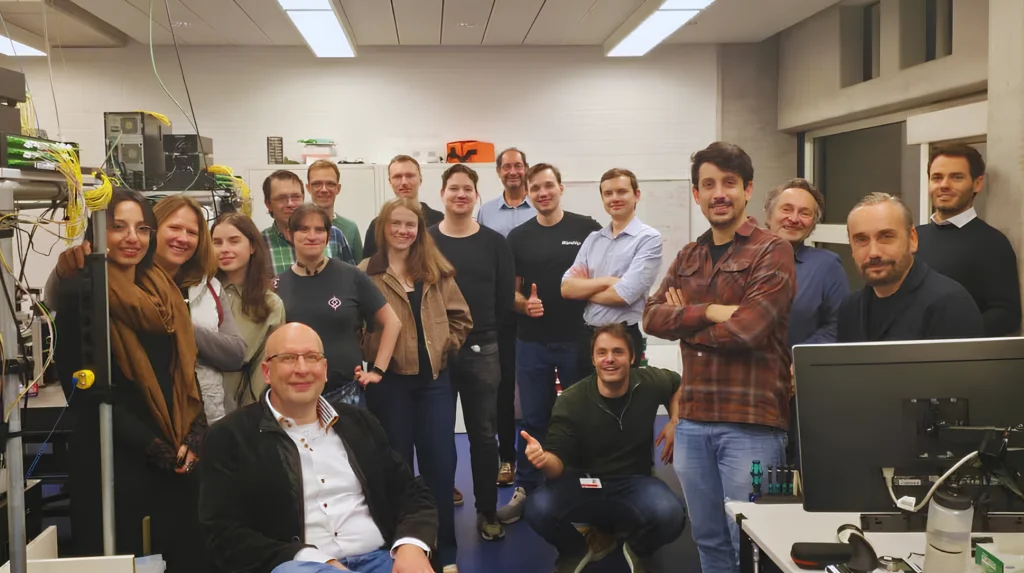Insider Brief
- A new report from Oxford Economics predicts that quantum computing could boost UK productivity by up to 7% by 2045, adding £212 billion to GDP, with potential gains reaching 8% by 2040 if commercialization occurs earlier.
- The report highlights a significant funding gap, noting that UK quantum hardware funding per company is ten times smaller than in competitors like France and Australia, posing a risk to the country’s global leadership in the field.
- Quantum computing could create up to 148,100 UK jobs by 2055, with only 24% within the sector itself, while enhancing industries such as pharmaceuticals, energy, defense, and financial services.
PRESS RELEASE — New research from Oxford Economics, published today, predicts that quantum computing could give the UK an economy-wide productivity boost of up to 7% by 2045 – equivalent to every worker achieving an additional three weeks’ worth of productivity per year without working an extra hour. The research shows this could add £212 billion – or approximately £7,500 per household1 – to the UK’s GDP, based on a scenario where commercially valuable industry use cases of quantum computing will first be observed in 2035.
The modelling also predicts that if quantum computing becomes commercially viable earlier, by 2029, the UK could see an economy-wide productivity increase of up to 8% by 2040, adding more than £200 billion to national GDP.
Government support crucial

The report notes the UK is among the global leaders in quantum computing and is home to the largest number of quantum start-ups in Europe, with world class research facilities. However, it finds this advantage could be lost without appropriate government funding and support for the industry.
Quantum computers have the potential to solve computational problems that are either impractical or impossible for today’s traditional super-computers to perform on their own. Experts believe this will lead to significant advancements, from accelerating drug discovery and optimising energy grids to enhancing cyber security.
The report, ‘Ensuring That The UK Can Capture The Benefits of Quantum Computing’, investigates the importance of the contribution of the UK’s quantum ecosystem to the economy, today and in the future. It also looks at how the sector is funded relative to its international competitors and the benefits it might bring to key UK industries.
Key findings include:
Boost to UK productivity and GDP
| Year | Productivity Increase | GDP Equivalent |
| Scenario 1: Quantum Computing Becomes Commercially Viable by 2035 | ||
| 2035 | 1% | £23 billion |
| 2040 | 4% | £98 billion |
| 2045 | 7% | £212 billion |
| 2050 | 8% | £284 billion |
| Scenario 2: Quantum Computing Becomes Commercially Viable by 2029 | ||
| 2035 | 5% | £95 billion |
| 2040 | 8% | £200 billion |
| 2045 | 8% | £239 billion |
| 2050 | 8% | £285 billion |
Source: Oxford Economics
Sector-specific productivity gains from quantum computing, under the scenario in which commercially viable industry use cases of quantum computing are first observed in 2035
| Expected productivity gain by 2055 | Industry CAGR with quantum computers | Industry CAGR without quantum computers | |
| Economy wide | 8% | ||
| Electrical manufacturing | 54% | 2.1% | 0.7% |
| Pharmaceuticals | 54% | 4.5% | 3.0% |
| Oil and gas | 46% | 7.9% | 6.6% |
| Defence | 33% | 4.9% | 4.0% |
| Business services | 32% | 3.8% | 2.8% |
| Transport | 26% | 3.8% | 3.1% |
| Chemical products | 26% | 4.6% | 3.8% |
| Financial services | 24% | 4.7% | 4.0% |
| Agriculture | 10% | 3.2% | 2.9% |
Source: Oxford Economics
Funding gap between the UK and peer nations
- UK quantum hardware funding per company is 10x smaller than major competitors including France and Australia.
- Increasingly, governments around the world are recognising the importance of quantum technologies to national security with many large-scale funding announcements being made by defence departments.
Contribution of the UK quantum sector to the economy
- The average labour productivity of the UK quantum sector (as measured by gross value added per worker) is £128,020 – more than twice as much as the average UK worker contribution of £61,900.
- The report estimates that in 2023 the direct contribution to UK GDP of the quantum computing industry was £135 million.
- This is projected to increase to £706 million in 2034, between £1.7 billion and £3.8 billion by 2045, and between £2.1 billion and £4.5 billion by 2055, based on pessimistic, general and optimistic scenarios.
UK-wide job creation
- In the most optimistic scenario, the modelling shows the number of jobs created by the UK quantum sector could increase from 5,100 in 2023 to up to 26,900 by 2034, 126,100 by 2045, and 148,100 by 2055.
- Of these, only 24% will be in the sector itself, with the rest forecast to be supported in its supply chain and through consumer spending from those employed in the sector.
- In 2055, the sector is forecast to have an employment multiplier of 4.2. This means for every 10 people projected to be employed in the quantum computing sector itself, another 32 are predicted to be employed around the rest of the UK.
Andy Logan, Director, Oxford Economics, said: “Our analysis makes clear that the UK’s quantum ecosystem has the potential to deliver significant economic benefits in the future in terms of economic growth, skilled jobs, and wider productivity gains. These will make several British industries more competitive and enhance the population’s standard of living. But to take advantage of the opportunity, government and the industry need to work together to ensure industry is appropriately funded and develops successfully to be globally competitive.”
Gerald Mullally, Interim CEO, Oxford Quantum Circuits, said: “The UK is home to one of the strongest quantum ecosystems in the world, with world-class talent and research already driving breakthroughs. Quantum technology presents a once-in-a-generation opportunity to transform some of our most impactful and important industries and to secure the UK’s position as a global leader in the next technological revolution. To seize this opportunity, we need bold, long-term commitment from the government as a strategic investor, customer, and partner. Other nations are moving fast, and without decisive action, the UK risks falling behind in a race that will define the future of technology and economic competitiveness.”
Dr Nicola Hodson, Chair, IBM UK & Ireland, said: “From accelerating scientific discoveries, to strengthening national security and turbocharging productivity, this research underlines the powerful benefits quantum computing can deliver across the UK economy in the coming years.
“This is why we at IBM are working with the UK government and clients across sectors – as well as the global quantum ecosystem – to engage with quantum computing today, so that we can reap the huge potential rewards of this technology in the years to come.”















